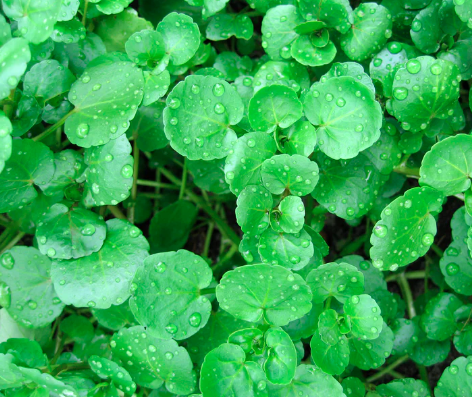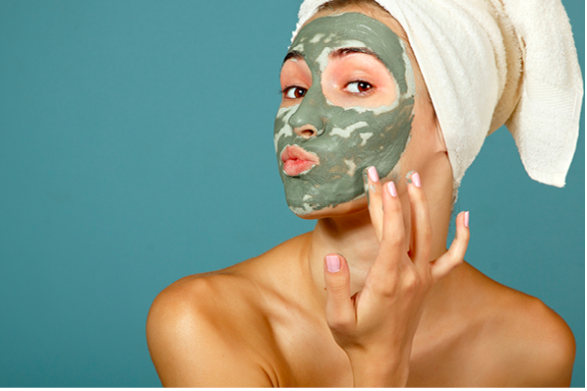Move Over Kale: Watercress Emerges as the "World's Healthiest" Food

Usually reserved as a mere egg sandwich garnish, watercress has undergone a transformation from mere plate decoration to being hailed as the "world's healthiest" food. This unassuming herb, often overlooked, is now making waves in the health and wellness community for its remarkable benefits.
Beyond a Garnish
Gone are the days when watercress merely adorned our plates; it's now recognized as a nutritional powerhouse. Scientists have deemed it the most nutrient-dense vegetable globally, surpassing even kale. The laundry list of benefits includes enhanced athlete performance, protection against lung cancer, blood pressure regulation, and anti-aging properties, making it a true superfood.
Dive into the Nutrient Profile
A swift examination of watercress's nutrient profile unveils an extraordinary assortment of essential minerals and vitamins. Among the crucial minerals present are calcium, known for promoting bone health, phosphorus, vital for energy metabolism, and iron, essential for red blood cell formation. Complementing these minerals, watercress boasts a spectrum of vitamins, including vitamin A, supporting vision and immune function; vitamin B, crucial for metabolism and energy production; vitamin C, renowned for its antioxidant properties and collagen synthesis; and vitamin K, playing a pivotal role in blood clotting and bone health.
Ancient Medicinal Uses
Contrary to the notion that watercress's benefits are recent revelations, historical records show its significance dating back centuries:
Hippocrates, the father of medicine, utilized watercress to treat blood disorders in his ancient hospital on the Island of Kos around 400 BC. Ancient Egyptians reportedly used it to treat various ailments, showcasing its longstanding recognition for therapeutic properties. The Romans, in addition to recognizing watercress's medicinal benefits, also attributed symbolic significance to the herb. Its association with purification and vitality made it a popular choice in rituals and ceremonies. Apart from internal use, watercress was often applied topically in ancient times to promote wound healing. Its natural antiseptic properties made it a trusted remedy for skin injuries and infections. In certain ancient cultures, watercress was believed to possess aphrodisiac properties, adding a touch of romance to its historical significance. Alkalinity and Medicinal Value
One remarkable aspect of watercress is its alkalinity, boasting a metabolic reaction score of 8.1. This makes it a valuable addition to counteract the acidic impact of modern diets, stress, and environmental pollutants. The herb's cleansing properties, particularly in the bloodstream, help dissolve fatigue-causing fibrin and contribute to overall well-being.
Health Benefits
Enhanced Nutrient Absorption: Watercress isn't just a nutrient powerhouse; it also aids in the absorption of essential nutrients. The combination of vitamins and minerals in watercress supports the body's ability to assimilate nutrients efficiently, ensuring maximum benefit from your overall diet.
Anti-Inflammatory Properties: Watercress contains compounds with potent anti-inflammatory effects. Regular consumption may contribute to the reduction of inflammation in the body, offering relief to individuals dealing with inflammatory conditions such as arthritis.
Boosted Immunity: The wealth of vitamins, particularly vitamin C, in watercress plays a pivotal role in fortifying the immune system. Regular intake may help the body fend off infections and illnesses, promoting overall immune health.
Elevated Energy Levels: Rich in iron, watercress supports the production of red blood cells, combating fatigue and promoting optimal oxygen transport throughout the body. Including watercress in your diet may contribute to sustained energy levels and improved vitality.
Digestive Health: Watercress's high fiber content aids in digestion and promotes a healthy gut. It can act as a natural remedy for constipation and supports the maintenance of a well-functioning digestive system.
Beauty Benefits
Watercress offers a range of beauty benefits, both when consumed and when applied externally. Here's how watercress can contribute to enhancing your skin's health and appearance:
Collagen Production: Watercress is rich in vitamin C, which plays a crucial role in collagen synthesis. Collagen is essential for maintaining skin elasticity and firmness, helping to combat the signs of aging such as wrinkles and fine lines.
Skin Hydration: As the name suggests, watercress has a high water content, which helps keep the skin hydrated. Proper hydration is essential for maintaining a healthy and radiant complexion.
Clearer Complexion: Watercress is known for its cleansing properties, especially in the bloodstream. This detoxification can contribute to a clearer complexion by eliminating impurities and promoting overall skin health.
Treatment for Skin Conditions: Watercress contains compounds with anti-inflammatory properties, which may be beneficial for individuals dealing with skin conditions like acne or redness.
Topical Application for Skin Issues: The application of fresh watercress juice has been historically used to fade freckles, spots, and other skin blemishes. The juice, when applied at night and washed off in the morning, is believed to contribute to a more even skin tone.
Acne Treatment: Watercress juice applied externally has been used to address acne, blemishes, pimples, and blackheads. Its natural properties can help improve the overall condition of the skin.
Beauty Skin Lotion: A beauty skin lotion made by mixing watercress juice with honey is said to improve the complexion. Applying this lotion to the skin morning and evening may contribute to a healthier and more radiant appearance.
Germanium Content: Watercress contains the mineral germanium, known for its various health benefits. Germanium can act as an antioxidant, helping to neutralise free radicals and contributing to overall skin health.

Homemade Watercress Masks
Creating homemade masks using watercress can be an effective way to harness its benefits for anti-aging and skin rejuvenation. The mask can help combat the breakdown of elastin and collagen, leading to more youthful and elastic skin.
Ingredients:
A handful of fresh watercress
Honey: 1 tablespoon (optional, for added moisture and antibacterial properties)
Yogurt or Aloe Vera Gel: 1-2 tablespoons (for soothing and moisturizing effects).
Instructions:
Wash the Watercress: Thoroughly wash the watercress to remove any dirt or impurities. Blending: In a blender or food processor, combine the fresh watercress, honey (if using), and yogurt or aloe vera gel. Blend until you get a smooth, consistent paste. Application: Cleanse your face before applying the mask. Using clean fingers or a brush, apply the watercress mask evenly to your face, avoiding the eye area. Relax: Leave the mask on for about 15-20 minutes. You may experience a tingling sensation, which is normal, but if it becomes uncomfortable, remove the mask immediately.
Incorporating watercress into your diet and skincare routine allows you to enjoy its natural and holistic beauty-enhancing properties. Whether consumed or applied externally, watercress stands as a versatile ingredient with potential benefits for your skin's health and appearance.
While ancient wisdom laid the foundation for recognizing watercress's benefits, modern research continues to unveil new dimensions. Ongoing studies explore its potential in cancer prevention, cognitive function enhancement, and cardiovascular health, hinting at a future where watercress plays an even more significant role in preventive medicine.
No posts found
Write a review